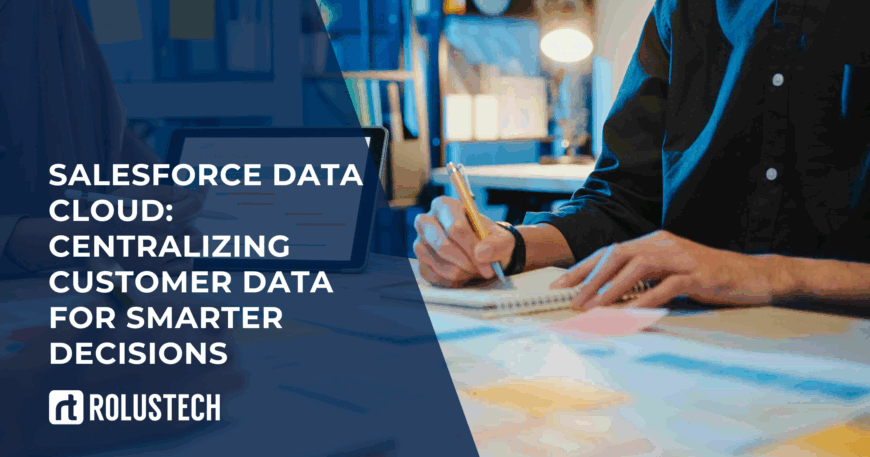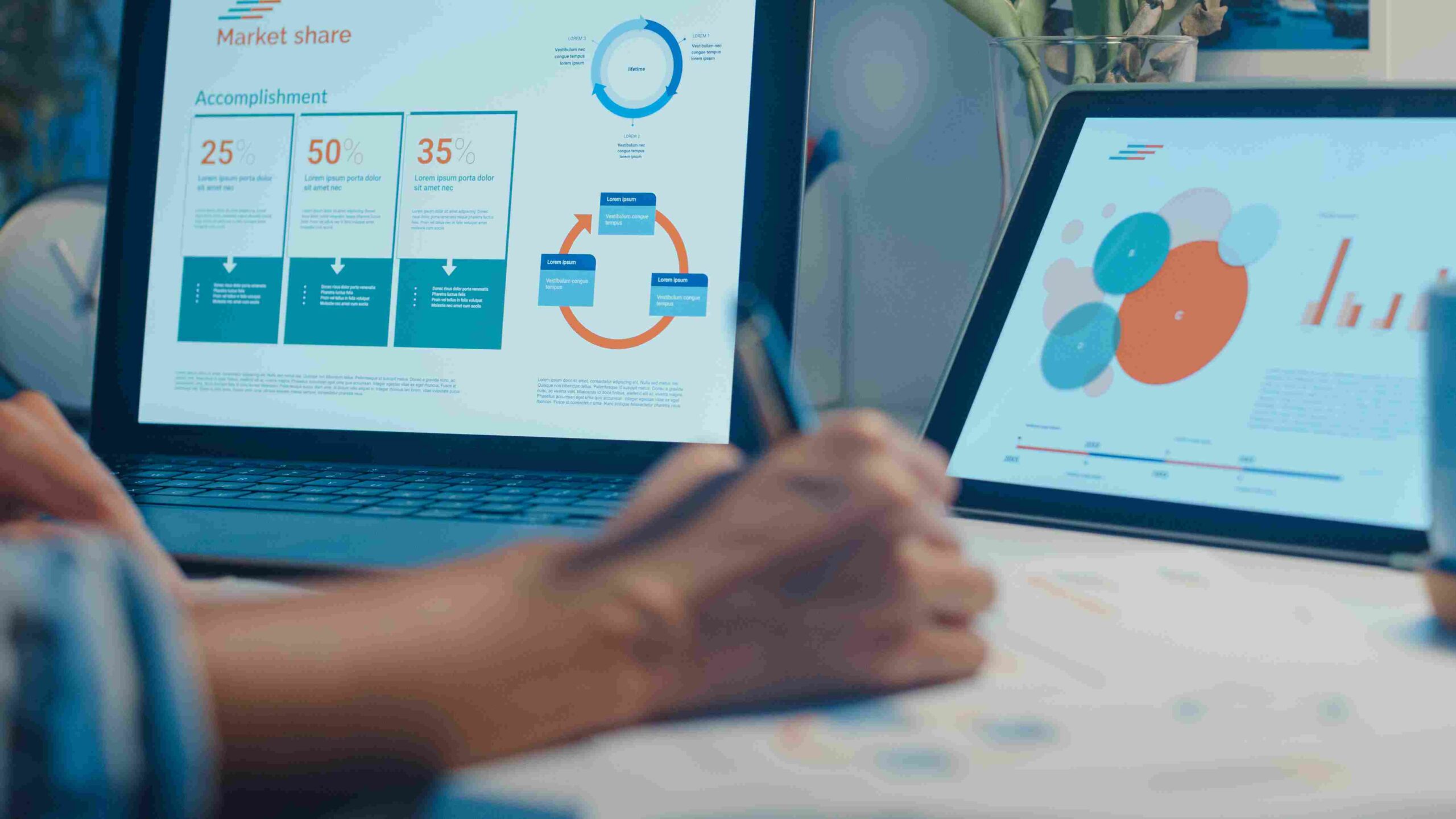What Is Salesforce Data Cloud?
The Salesforce Data Cloud is a real-time platform that connects all your customer data in one place. It works with both internal and external sources, including your CRM, apps, websites, and third-party tools. This gives you a single source of truth for every customer interaction.
Salesforce CRM transforms scattered information into a unified customer profile. No matter where the data comes from, email clicks, mobile activity, or purchases, you see it all. Every department can act on the same insights simultaneously.
What sets Salesforce Data Cloud apart is its real-time intelligence. It’s powered by Salesforce AI and deeply integrated with Salesforce Einstein. So, it’s not just storing data, it’s constantly learning from it. With this cloud, you stop guessing and start understanding what customers want before they ask.
Let’s explore why that matters more now than ever.
Why Centralizing Customer Data Matters
Today, businesses must manage data from multiple channels, including mobile, service, and social media. If this data stays disconnected, it leads to blind spots and poor customer experience.
You might miss key signals, such as abandoned carts or recurring complaints. Centralizing this data removes friction from customer journeys. It gives sales, service, and marketing teams the same real-time view.
When everyone sees the same customer profile, actions become faster and wiser. Let’s say a customer interacts with your chatbot and then visits your store. If the store rep doesn’t know about the earlier chat, the experience falls short. But with Salesforce Cloud, that chat is logged and visible to all.
This type of 360-degree visibility enables personalization, fosters loyalty, and facilitates better decision-making. The result? Happier customers and a more efficient team.
How Salesforce Data Cloud Works with Salesforce CRM
Salesforce CRM already tracks leads, opportunities, and support cases. But Salesforce Data Cloud takes it a step further by integrating external sources. This includes ad platforms, websites, IoT devices, and even offline interactions. The Data Cloud uses identity resolution to match customer data across platforms.
If one user logs in with an email address and later uses a mobile device, it connects those dots. This provides a real-time profile that evolves with every interaction. Sales representatives can now view purchase history, recent issues, and product interest all in one place. Support agents can prioritize VIP customers and tailor resolutions instantly.
Marketing can trigger journeys based on behavior, not assumptions. The best part? Everything is updated in real-time. No waiting for syncs or batch updates. That’s the power of combining Salesforce Data Cloud and Salesforce CRM.
Combining Data Cloud with Salesforce AI and Einstein
Data alone isn’t enough. You need intelligence to act on it. That’s where Salesforce AI and Salesforce Einstein come in. Einstein automatically analyzes trends, predicts outcomes, and scores leads. When paired with Data Cloud, it receives a significant upgrade, including increased data and enhanced accuracy.
The more data Einstein sees, the brighter it becomes. Let’s say your team is running an email campaign. Einstein can now predict which segment is most likely to convert based on real-time behavior. Sales teams get alerts when a high-value customer signals buying intent.
Service agents can get suggested replies based on sentiment analysis and case history. Marketing teams can also automate personalized offers, down to the individual level. With Salesforce AI embedded in the Data Cloud, decisions are no longer reactive. They’re predictive, that’s a game changer.
Enhancing Insights with Salesforce Analytics
Once your data is centralized and AI-powered, you need tools to understand it. This is where Salesforce Analytics becomes your secret weapon. The Data Cloud feeds live data into Salesforce Analytics dashboards. You can view sales performance, campaign results, and customer trends in real-time. No exporting. No manual spreadsheets. Just clean, actionable insights.
Executives get a bird’s-eye view of KPIs across regions and teams. Managers can track sales funnels, case resolutions, and agent performance at a glance. Marketers can monitor campaign ROI and make adjustments quickly based on live data.
Need more flexibility? Use Einstein Discovery to get automated suggestions and predictions. Want to visualize trends? Tableau integration brings data storytelling to life. With Salesforce Analytics, insight turns into action faster than ever.
Importing and Managing Data via Salesforce Data Loader
Before the magic happens, data needs to be imported, cleaned, and organized. This is made easy with Salesforce Data Loadera, a trusted tool for bulk data operations. Whether you’re importing leads, updating records, or deleting old entries, Data Loader handles it. It supports large volumes and works well with both cloud and on-premise databases.
You can schedule recurring imports, automate syncs, and securely control access. More importantly, it ensures your Data Cloud remains accurate and compliant. With Data Loader, data entry becomes smooth, fast, and error-free. And when your foundation is clean, the whole system performs better. This tool plays a crucial role in maintaining the effectiveness and scalability of Salesforce Data Cloud.
Real-World Use Cases of Salesforce Data Cloud
Let’s look at how businesses are using Salesforce Data Cloud today:
Retail brands utilize it to track customer behavior across various channels, including apps, stores, and email campaigns. With this data, they create personalized shopping experiences and improve loyalty. Financial services use it to detect fraud patterns, offer targeted products, and streamline compliance. By combining CRM data with transaction history, they reduce risk and serve their clients more effectively.
Healthcare providers use it to unify patient appointments, prescriptions, and communication history. This helps deliver more personalized and timely care. E-commerce companies use Salesforce Data Cloud to reduce cart abandonment. If a customer browses but doesn’t buy, marketing can send real-time reminders or offers.
Education platforms combine user progress, feedback, and engagement data to provide a comprehensive view of learning. This helps them adapt learning paths and boost student retention. These examples demonstrate that, regardless of your industry, a unified data strategy can make a significant difference. And Salesforce Data Cloud delivers that strategy with speed, accuracy, and intelligence.
Smarter Decisions Start with Unified Data
In a world driven by data, fragmentation is your enemy. Disconnected systems slow down teams, confuse customers, and weaken decisions.Salesforce Data Cloud gives your business a unified, intelligent data platform. It brings together real-time insights, AI, analytics, and automation in one place. By centralizing data, you empower teams to act with confidence and precision.
You reduce guesswork, improve experiences, and unlock growth potential. The future of business is not just digital’s data-driven, real-time, and customer-centric. With Salesforce Data Cloud, that future is now.
Embrace the Future with Salesforce Lightning
Ready to step into smarter, faster decision-making? The combination of Salesforce Lightning, Data Cloud, and AI tools gives you a potent edge. Say goodbye to siloed systems and hello to a 360-degree view of the customer. With the correct data at the right time, you serve better, sell smarter, and grow faster. Salesforce Data Cloud is more than a product, it’s a transformation.
Start now, and lead the way in a connected, intelligent business world.
FAQs
Q1: Is Salesforce Data Cloud the same as Salesforce CRM?
No, Salesforce CRM manages customer relationships, while Data Cloud centralizes and enriches data from all sources.
Q2: How does Salesforce Data Cloud improve personalization?
It combines behavioral, transactional, and demographic data to deliver hyper-personalized experiences in real time.
Q3: Can I use Salesforce Data Cloud with third-party tools?
Yes, it supports integration with apps, APIs, and tools beyond the Salesforce platform.
Q4: Is Salesforce Data Loader mandatory for Data Cloud setup?
Not mandatory, but highly recommended for bulk data import, updates, and cleanup tasks.
Q5: Does Salesforce Data Cloud include AI features?
Yes, it’s powered by Salesforce AI and Einstein to provide predictive insights and automation.







